Recollections of the Abyssopelagic Dredge, by Aster Olsen
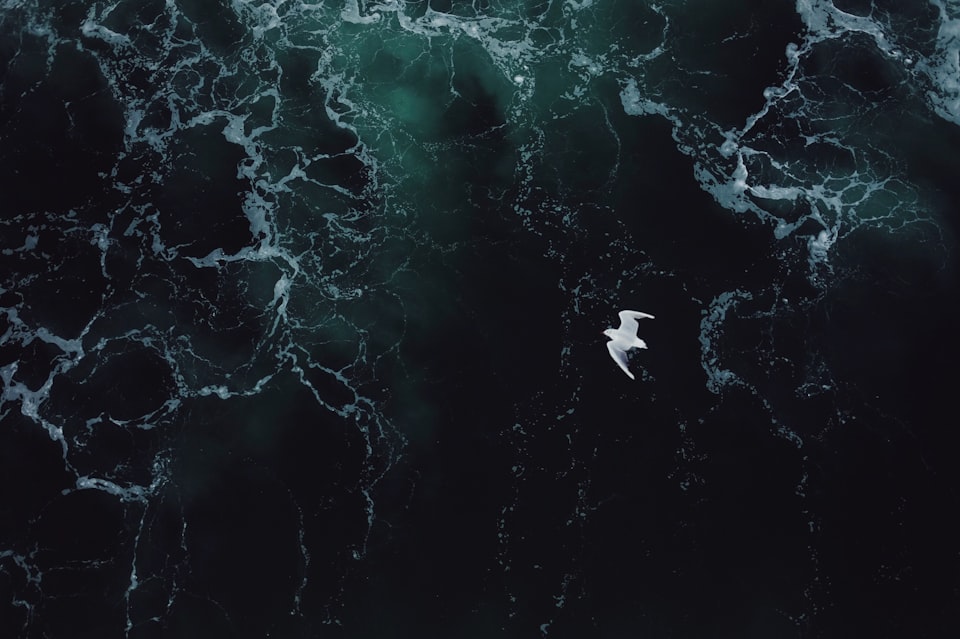
Content warnings
Violence. Transphobia.
I try not to live with regret. Even now, I’d rather remember that shared moment of anticipated triumph when the crew and scientists of the R/V Thompson gathered around the gently swaying 55-inch flat screen monitor in the cramped dry lab to observe my deep-sea dredge deployment, illuminated by 10,000 lumens of LEDs, slip beneath a thick layer of hypersalinity and disappear into a shimmering of scattered light. It’s a nice memory, but I won’t indulge in delusion.
When we withdrew the dredge, when we winched my discovery onto the surface and opened the metal jaws and prepared to neatly package the sample into our waiting sterile containers, a substance oozed, too fast, onto the deck, an unconsolidated slippery dark muck that later, I would discover, leaves behind sharp white bones as it spreads. The lab tech thrust her naked hand into it before I thought to voice a tepid warning. She screamed out first in surprise, then agony, and finally terror, as her own phalanges and metacarpals leaped towards the muck, piercing her delicate flesh from the inside. My words died on my lips as the substance oozed into her fresh wounds and she turned towards me, full of betrayal. Later I would learn that these were also old wounds. In retrospect, it was much too late when I tried to stop her.
The R/V Thompson expedition was my idea, and I take full responsibility. I hadn’t had a breakthrough in years, and funding was drying up, and so I returned to the location where, four years earlier, I had found something the NSF thought worthy of funding. The past, I thought, had the solution. I would find my future in the past. And my initial findings were promising. Nutrient readings taken a tenth of a meter above the bottom were atypically low. Measurements for marine snow accumulation were nonsensical, with no accumulation past the bathypelagic, and a decrease in biomass approaching the bottom. A distinct lack of any species larger than zooplankton. It seemed dead, to the untrained eye. But I suspected a new form of life. When I ordered the deep dredge operation, impatient to waste more time on intriguing but fruitless sonde deployments and remote bathymetry, I knew I would find what I’d been looking for: a discovery that would write me into the history books and give me the respect I was due.
I couldn't have known what we would unleash. That I should have sunk the R/V Thompson then and there and returned what I found to the deepest part of the ocean, buried under crushing atmospheres of pressure, invisible and hidden in perpetual darkness. I had the chance, I know I did. But I delayed. I believed in the triumph of rationality then. Perhaps that is why I seek forgiveness.
Once it had a foothold in our vessel, it spread. First, the lab tech. Then the ship's doctor. Then to the cook, postdoc, first mate, engineer, and more. Should we have made the connection? Shouldn't the others have realized the lab tech, despite her wounds, was the one to fear, not me? In hindsight, it is obvious. We should have feared her because of her wounds.
Within a day the ship’s occupants had been split in two, an alliance formed of those loyal to me and those in orbit around the infected lab tech.
It had started to assemble a new form by then. Black sloshing unconsolidated organic matter knitted into an approximation of a person within the clear reinforced plexiglass chamber I had confined it in after the lab tech incident. To me, the evil that composed its form was obvious. But it was learning. Its presentation improving enough to convince the less skeptical, to prod at their biases until it found their fear or their empathy. Do I not deserve freedom, it asked us. That was when the doctor succumbed. She was the one who released it.
Once it was amongst us, I lost control entirely. I watched it rewrite the past in front of me while the others were too slow to notice. My detailed scribblings in the yellow sheets of my lab notebook were no match for its infectious claims, for those pages were tainted by association with me and therefore unreliable. That’s when I discovered it could smirk when I was the only one paying attention.
A scream of frustration was all it took.
And then I was the aggressor. I was unreasonable. I had locked it away against its will, a horrible oppressor. Even now I feel my heart speed at the accusations. How could they say such horrible things? I took a lot of pride in my reasoning, back then. I was unprepared to deal with unreason.
My allies still tried talking, but the truth is I gave up the day of the dredge, when I spoke gently to the lab tech while bandaging her hand, and she yanked away from my touch and called me a— I won’t repeat it. I knew I spoke to it then, not her, that she was merely a hollowed-out vessel. But it was painful. It left a wound.
Still, habits persist, even when it’s too late. Especially when it’s too late. The lab paraded out studies and discussed philosophical shortcomings and logical inconsistencies in my discovery, and pretended it was productive. Futile, but I was naive then. I didn’t want to cause further tension. I thought I could deescalate the growing rift, but the lab tech turned the discussion back upon me with rhetorical flourishes while oozing into any available open wound.
We lost the cook during dinner that evening. I saw the band aid on his sliced finger, a hazard of the job. That was the last communal meal I ate.
The engineer and postdoc said we could not condemn something still developing, still finding its form. We couldn’t know its intentions unless we engaged, unless we viewed it as legitimate and worthy of respect. Otherwise, we couldn't rush into any kind of conclusion about its nature. I realized then they couldn’t remember what had happened the day we dragged it aboard. They couldn’t, or wouldn’t, acknowledge any fear and pain. They had forgotten the lab tech’s scream. They couldn’t remember her look of contempt for me. I suspected they were already part of it then. If not physically, then spiritually.
What reasoning would convince a force that knew only to destroy?
What did it want? It wanted to consume. It wanted to expand. It wanted me gone.
We turned on one another. Its whispering at the locked door proved too seductive even against knitted flesh. I discovered this when the other grad student insisted I exit before her, and a reflection in the polished metal door caught a glimpse of a switchblade held behind her back, a fresh nick of blood spotting between her shoulder blades, framed by the straps of her white tank top and shoulder length brown hair.
I survived. We do not need to dwell on how. If you're reading this, you already understand. We must put our own survival first, for how else will we stop it.
I did try to stop it. I like to think others did too. I believe the captain never succumbed, nor did the undergrad. We are often stronger than we expect.
My PI turned against me. When I found him submerged in its filth, he offered a meaningless apology. And then he slowly and pathetically spread toward me, seeking out the micro-abrasions along my shaved legs. Some are weaker than we expect.
I broke every drill bit I could find trying to poke holes through the thick steel hull of the Thompson. I was sure the grind of metal would attract attention, would become my dirge, but only the captain found me and offered a gentle scolding. She had a ship to operate. She had an obligation to bring us back to shore. I was not to interfere, or she would place me in the brig.
Maybe I was always doomed. How do I fight something intangible? Something so fluid and adaptable, something that doesn’t just destroy those like us, but first corrupts them, enlists them against us. How do you have allies when trust bleeds away?
Little by little it corroded and corrupted us. The doctor quit taking patients, the communal pursuit of knowledge transformed into a scaffold of post hoc excuses and secrets. Peals of laughter in the breakroom gave way to suspicious glances. We stopped eating meals together. Journal club devolved into accusations. Tears and yelling and fear dominated, even before we became aware of the stench of curdled blood and ripped flesh that inevitably followed in the wake of the muck. The truth was clear to me then, even as the undergrad held onto hope: we had lost. I had lost.
When we got back to shore, I left. I needed to outrun it. I told myself it was practical to flee, that I needed to find a way to inoculate others against it, somehow. Perhaps, at least, there was a way I could disguise myself and hide. I gripped the grad student’s switchblade for reassurance as I walked down the shining gangway to shore, but it did not see me leave in the early morning light. I left alone, for it was up to me to solve it, despite what the undergrad told me through her tears and snot when I forbade her to follow.
My mistake was taking a bus during rush hour. If only I had sat somewhere else, or taken a cab, or if the undergrad had been with me, I know these events wouldn’t have happened. But, you understand, I do what I need to survive. I must look after myself. My needs must come first, especially when under threat. You would do as I did, given the circumstances. I know it.
Two stops after I boarded, a grad student from the Meyer’s lab sat next to me, his lanky frame brushing against my left thigh. His curled brown hair was long, his face unnaturally smooth, and his nails were painted black and pink, but it was the same boy who’d done a rotation through my lab, even if he was trying to hide it now. When he crossed his legs, one of his stained tennis shoes pressed on my waterproof duffle bag. The bus was crowded, but there was another seat available somewhere, I’m sure. I said as much to him, and he pretended to be hurt by my words. He smelled like decomposing phytoplankton, and I know he leered at me. I could feel that familiar smirk, and I saw his face slip into that of the lab tech out of the corner of my eye. It happened. I need you to believe me that this happened. The lightless muck had followed me, and now it was toying with me. He began to speak, an oddly high-pitched lilting voice. He meant to humiliate me, to have one last laugh before my defeat, and as I sat there frozen, cornered, vulnerable, and alone, something inside of me snapped, and a fierce revilement ripped itself out of me and hurled towards him. There was a sharp, deep, sickening pain as my left femur ripped apart flesh, and tendrils of black muck surged through my leggings, and I screamed every profanity I knew at that mockery of a woman and plunged the knife deep.
Aster Olsen
Aster Olsen is southern, trans, a biologist, and on occasion a writer. She lives in Seattle.
- Website: https://asterolsen.com
- Twitter and BlueSky: @asterolsen
- Instagram: @asterviridae
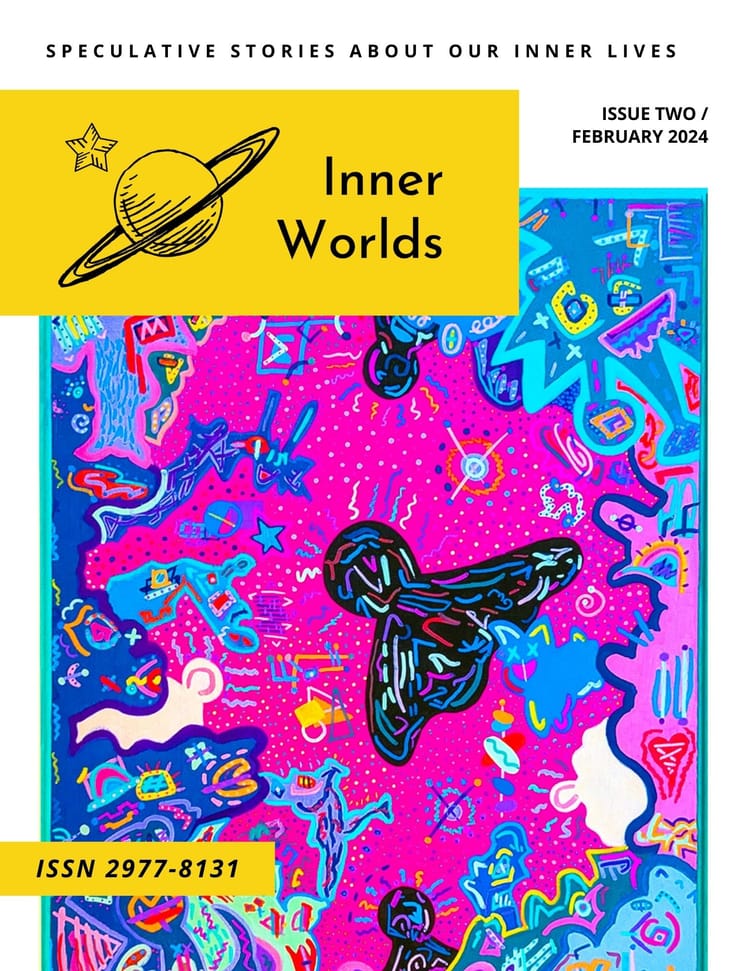
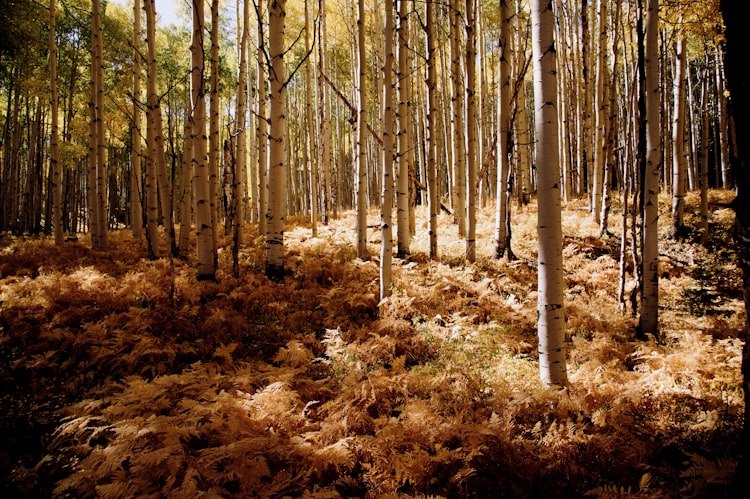

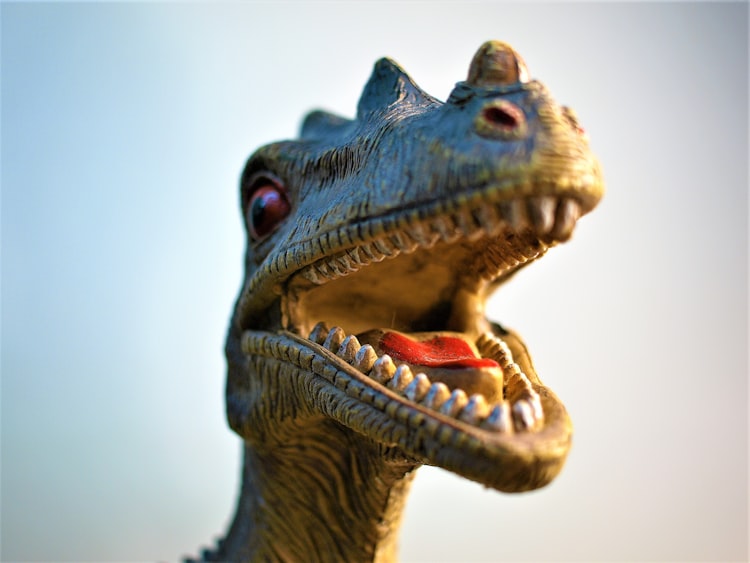
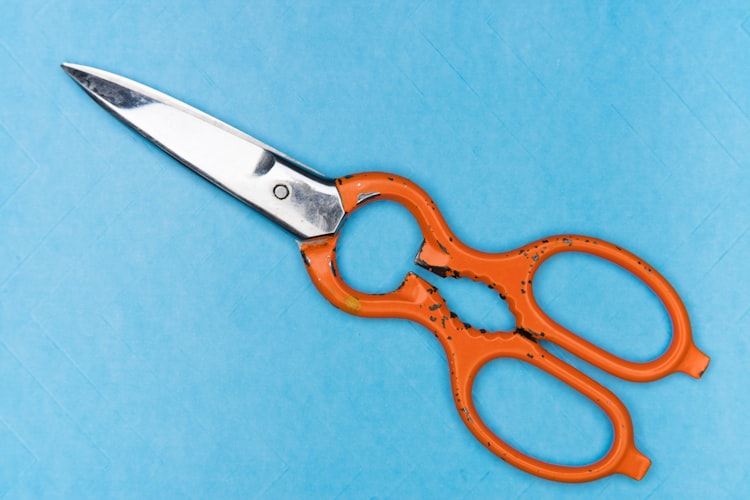
Member discussion